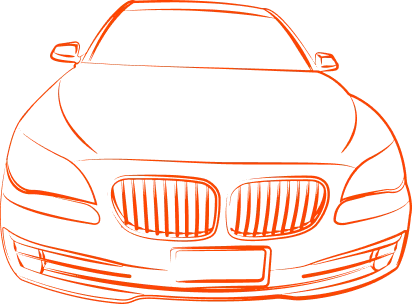
Decode Your VIN & Discover Your Vehicle’s Details
Smarter, Faster, Trusted by Thousands
Lookup any VIN to reveal hidden damage, odometer rollbacks, previous owners and open recalls.
Input must be exactly 17 characters long.





Lookup any VIN to reveal hidden damage, odometer rollbacks, previous owners and open recalls.
Input must be exactly 17 characters long.




When shopping for a used car, you’ve probably heard someone say, “Make sure to check the VIN.” But what exactly is a VIN? Why is it so important – and what can you really learn from it?
is a unique 17-character code tied to every vehicle. It holds structured details about manufacturing, configuration, and when accessed properly — ownership and incident history. Checking it is one of the first things people do before buying a used car. To get started, try our tool.

First 3 characters: World Manufacturer Identifier – tells you where the vehicle was built and by which company.
Characters 4–8: Describe the car’s body type,
engine size, model, and
series.
9th character: A security digit that
helps verify the VIN's
authenticity.
10th character: Represents the model year.
11th character: Identifies the manufacturing plant.
Characters 12–17: The vehicle’s unique serial number.
If you’ve ever wondered how to read my VIN number or more specifically, how to read a GM VIN number, the structure is standardized – but different manufacturers may assign slightly different meanings to the same positions.
For example, GM-specific VINs follow a similar pattern, but decoding them often requires a GM VIN reference to fully understand details like trim level or drivetrain. If you're looking into a truck or SUV from General Motors, and asking how to read a GM VIN, there are resources that can help you break it down easily – or just run a full VIN check and get the complete story in seconds.
Sometimes, running a VIN check reveals a status like “rebuilt” or “reconstructed.” But what does that actually mean?
the vehicle was previously deemed a total loss by an insurance company (often due to an accident, flood, or theft), then repaired and inspected before being allowed back on the road.
A rebuilt title isn’t always a deal-breaker, but it’s a big red flag if you weren’t told about it upfront. The car might look fine, but behind the bodywork could be hidden damage or subpar repairs. That’s why understanding what a VIN report includes is essential – it helps you evaluate risk and resale value.
People also use the VIN to identify the vehicle they own – or are considering buying.
identifying the exact specifications and configuration of a car based on its VIN. This includes trim level, engine type, country of origin, transmission, and sometimes even factory-installed options.
For more on how VINs are used in buying decisions, see How to Use a VIN Check
That’s incredibly useful if the seller gives you only the VIN and you want to double-check what’s really being sold.
Knowing your vehicle’s value is a key part of any transaction. You might want to sell, trade-in, or just confirm you're getting a fair price.
A common question is:
While the VIN doesn’t directly show the value, it provides the necessary info to determine it. Valuation
tools use VINs to match your vehicle with national databases of sales, depreciation models, and vehicle
condition ratings. These often rely on verified sources like NMVTIS or NHTSA.
So yes – it’s one of the fastest ways to get an accurate, VIN-specific estimate for resale or
negotiation.
If you’ve read this far, you’re probably thinking: "Okay, so VINs carry a lot of info – but why should I care?"
Because when you’re buying a used car, you can’t rely on appearances.
Sellers might not know or might not tell you that the vehicle was previously:
Branded as salvage or rebuilt
Damaged in a serious accident
Declared a flood loss
Odometer-tampered
Sold at multiple auctions
A VIN gives you access to all that. It takes you beyond surface-level sales pitches and into verified data – title records, recall info, accident reports, theft status, and more. That’s why so many buyers rely on trusted platforms like VinScanPro to see what’s really behind a listing.
For more benefits, check out Why a VIN Check Matters
Even if you’re thinking of selling, your VIN helps you build credibility. Being able to say “here’s my vehicle history” adds transparency and gives buyers more confidence.
A Vehicle Identification Number is more than a string of characters. It’s the digital DNA of your car – detailing everything from factory settings to what’s happened on the road since it left the lot.
So next time you look at a used car, don’t just test-drive it. Decode it.
Understanding:
can give you a serious advantage, whether you're a buyer, seller, or just curious about your vehicle’s past.
Learn about a vehicle,




Enter the 6-digit code that we sent to your email.

Please enter the 6-digit code sent to your email.